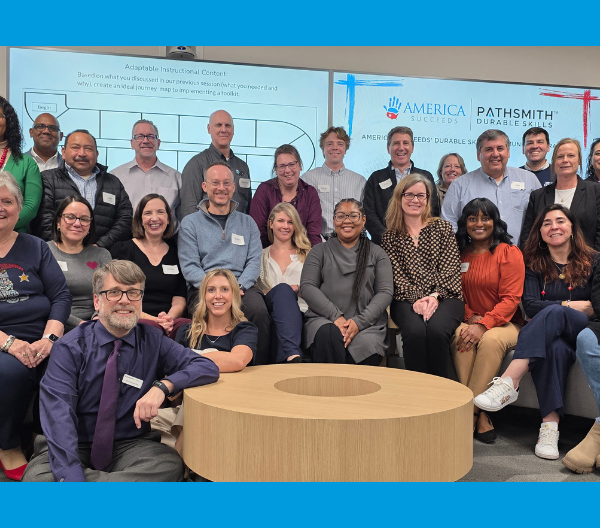Writing for Strategy Execution, PMO and agility aficionado Lindsay Scott shares her insights from the Agile Business Conference last month, which was hosted by the Agile Business Consortium. This year’s theme was Creating Generation Agile.
In Scott’s piece—Agile and Agility: The Future of Work—she highlights several aspects of the convening, which brought together a rich mix of business leaders as well as agility experts and practitioners. Something of an outlier was Jason Gaulden, Vice President of Partnerships at America Succeeds. He was invited to speak about Agility in the context of the education system.
This is how Scott summarized the session:
The Future of Work: Schools
Jason Gaulden from America Succeeds shared insights from their latest report – The Age of Agility. The report focuses on the education of children today and whether we’re preparing them for the workplace. The workplace Jason talks about is one where, “need to get comfortable with uncertainty, embrace flexibility, and reset expectations about the employer-employee relationship”.
The report also highlights the problems we know automation will bring – where a lot of low level, entry-level jobs could cease to exist as tasks become more automated through technological advances. He highlighted the point brilliantly when asking the audience, “what was the first job you did at the age of 14, 15, 16 years old, and does it still exist today?” The petrol pump attendant and the milk delivery round are just not there anymore.
The overview in the report from Deloitte Review brings it all together clearly. The changes that are happening in the world today; how that affects work – and what individuals, businesses and the governments need to grabble with.
America Succeeds is lobbying for the changes needed at the school education level to get kids ready for the workplace. They’re worried that the current education system won’t be teaching them, at the very least, the WEF skills requirements of the future. Have a read of the report.
What was made clear is that the challenge of modernizing the education system is universal. Rapid evolutions in technology necessitates what Gaulden described as the straightforward bottom line: “if students and workers must be agile and adaptable to succeed in this new world, then the same holds true for the education systems that prepare them.”





